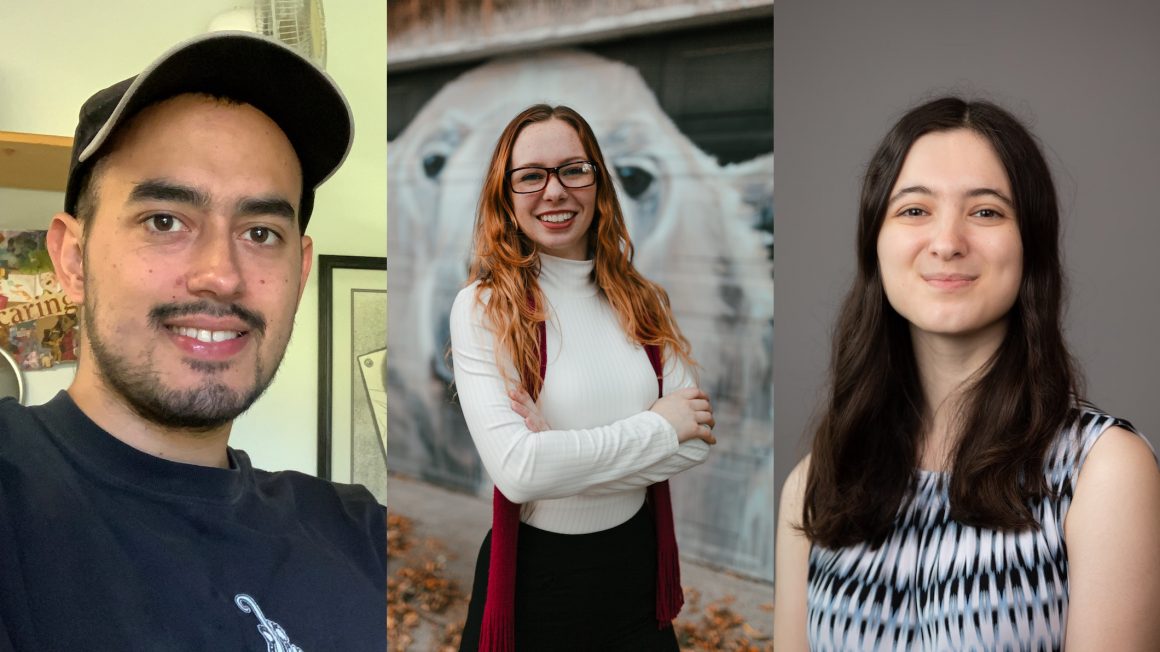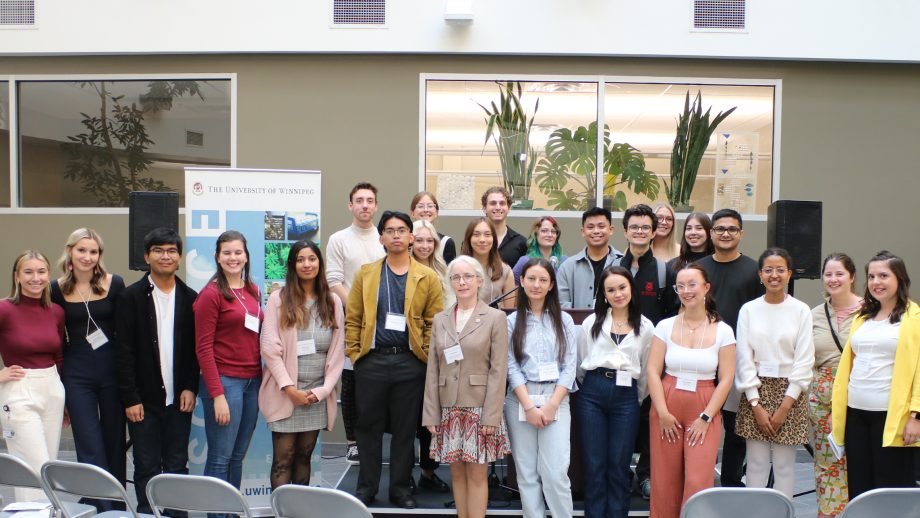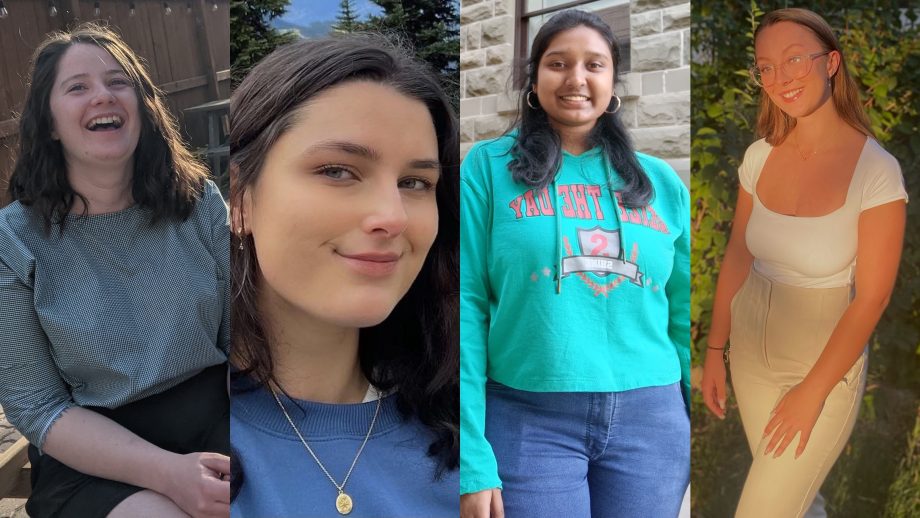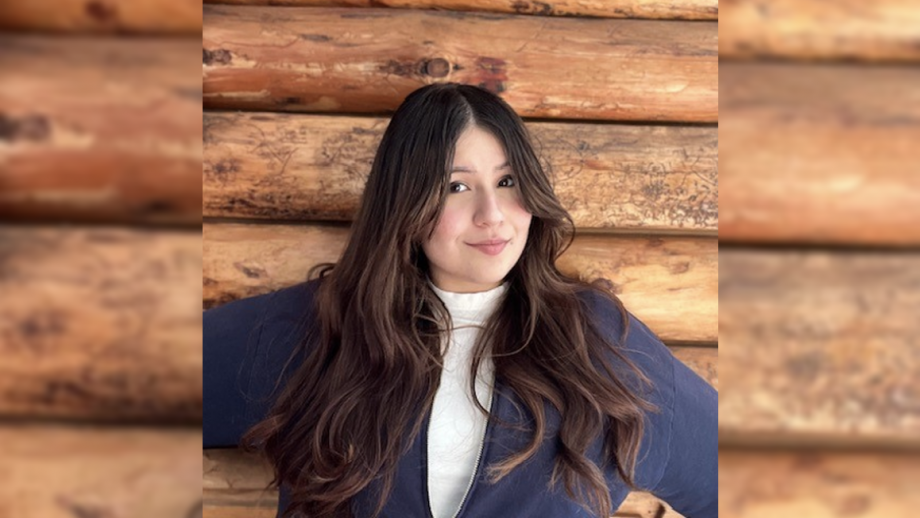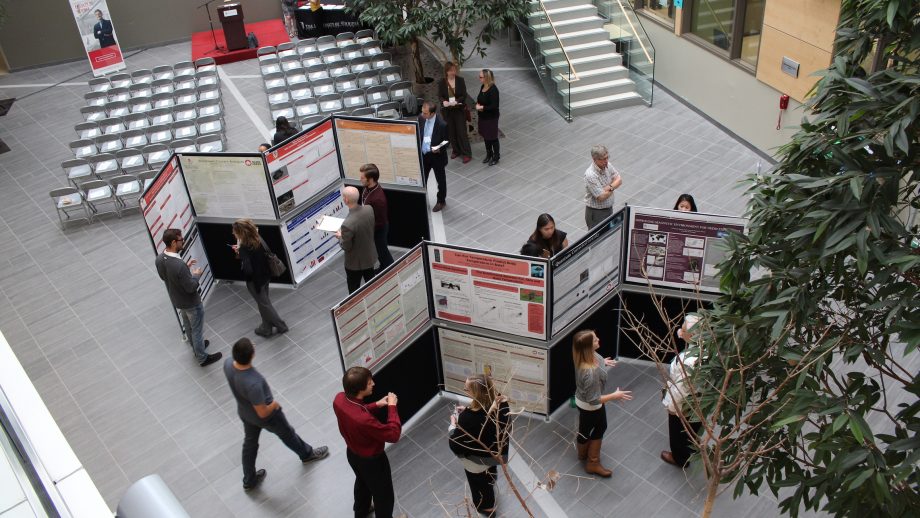Stellar student research was highlighted this month during the 16th annual Randy Kobes Undergraduate Poster Symposium.
For a second consecutive year, the event was held virtually on Zoom due to the ongoing pandemic and, once again, participation was high with more than 25 students presenting their research.
“The student research on display at the Randy Kobes Poster Symposium this year was fantastic, especially considering that almost all of the projects were conducted remotely,” said Dr. Nora Casson, Associate Professor, Department of Geography, and Canada Research Chair in Environmental Influences on Water Quality.
Having the chance to present my work to a wider audience was really gratifying, and it’s an honour to receive first place.
Jessica Major
“The judges were especially impressed with how well the students communicated their complicated, technical work to an audience of non-specialists. One of the special things about UWinnipeg is the breadth of opportunities available to undergraduates to participate in research, and this was a wonderful showcase of that work.”
Participation once again was high amongst students who took part in the Pathways to Graduate Studies program and two students finished in the top three of their respective categories.
“Several of the program participants and two of the award winners were first- and second-year students of the Pathways to Graduate Studies,” said Casson. “It’s a strong indication that even students early in their undergraduate careers are doing awesome research at UWinnipeg.”
All presentations were made via Zoom during the week of September 7-10, followed by judging from September 13-17. The symposium wrapped up last week with an awards ceremony.
Congratulations to first-place recipients:
Maxina Sheft (Experimental Physical Sciences), Analyzing Axons in the Human Brain Using MRI, supervisor Dr. Melanie Martin.
“I am honored to have been awarded first place, and I am grateful for the recognition of the work I put into my research project. It would not have been possible without the support of my advisor, Dr. Melanie Martin,” said Sheft. “Each day, improved methods are being developed to make sure that people can get the best healthcare possible, and I enjoy contributing to this advancement. The more accurate the images we can collect of the human brain, the more information we have to apply to diagnosing and treating various neurological disorders.
Kerianne Chant (Biological and Environmental Sciences), Evaluating a five-factor personality assessment for use in polar bears, supervisor Dr. Stephen Peterson.
“Researching polar bears has been a dream. Being able to see the impact my work has directly on the care and management of the bears at Assiniboine Park Zoo has been the most rewarding experience,” said Chant. “What I love most about my project on polar bear personalities is that it allowed me to combine both my biological and psychological research interests in this amazing project that advocates for animal well-being.”
Joshua Basman Monterrubio (Math and Theoretical Physical Sciences), Research in Pure Mathematics: Algebraic Combinatorics and the Cyclic Sieving Phenomenon, Dr. Anna Stokke.
“I am glad to take away that the joy and excitement for mathematics and that the research I did this summer with my research partner Graeme Henrickson and supervisor Dr. Anna Stokke resonated with the audience of my presentation,” said Basman Monterrubio. “Synthesizing this information for this format required creativity, prioritizing skills, and a certain mastery of the subject to critically analyze what details are worth going into given the fact that no background knowledge on the subject was assumed of the audience.”
Jessica Major (Social Sciences), Feminism and the medical discourse surrounding menstruation: a quantitative content analysis, supervisor Dr. Mirjana Roksandic.
“Having the chance to present my work to a wider audience was really gratifying, and it’s an honour to receive first place,” said Major. “’I’m also passionate about using my research to shine a light on menstruation as a whole. It impacts half of the population and can be very detrimental to quality of life, and yet it’s been veiled by shame and taboo. I hope that my research can help create a new dialogue about menstruation that empowers rather than shames.”
Congratulations to second- and third-place finishers:
Brayden Yarish (Second Place, Experimental Sciences), Determining the systematic errors on a sensor moving through a magnetically shielded room, supervisor Dr. Russell Mammei and Flora Easter (Third Place, Experimental Physical Sciences), Design of Water Pool for Caibraton of Optical Detectors for Neutrino Physics, supervisor Dr. Blair Jamieson.
Gracie Grift (Second Place, Biological and Environmental Sciences), Predictors of expiratory flow limitation during exercise in healthy females and males, supervisor Dr. Yannick Molgat-Seon and Mathieu Sawatzky (Third Place, Biological and Environmental Sciences), Airway size and its association with exertional dyspnoea in healthy males and females, supervisor Dr. Yannick Molgat-Seon.
Antonio Axalan (Second Place, Math and Theoretical Physical Sciences) Zero-inflated beta-autoregressions with applications to winter climate time series, supervisor Dr. Melody Ghahramani and Michael Grehan (Third Place, Math and Theoretical Physical Sciences), Computational Solutions of Feynman Integrals for One-Loop Five-Point Processe, supervisors Drs. Samuel Abreu and Ben Page.
Sean Carter (Second Place, Social Sciences), Reduced functional connectivity across all components of the Delis-Kaplan Executive Function System Colour-Word Interference Test in individuals with Multiple Sclerosis, supervisors Drs. Jen Kornelsen and Dr. Steve Smith.
The Randy Kobes Undergraduate Poster Symposium team sends special thanks to the entire University community, including the Dean of Science, the Research Office, and the research supervisors for helping pull off this event.

